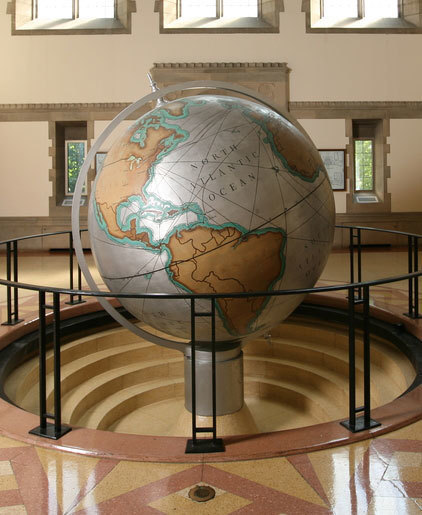
They bring expertise in subjects that span physical borders and chronological boundaries. They bring passion to their research and energy to their classrooms.
And the six new faculty members joining Notre Dame’s Department of History this fall bring additional prestige to an already elite group of academics.
“This is the fruition of many years of hard work, by the people of this department and the chairs who have served before,” said Patrick Griffin, chair of the department and the Madden-Hennebry Professor of History. “For a long period of time, we’ve been working to assemble a group of scholars that could work across national boundaries, redefining the department and what it does.
“These scholars add to and amplify what we’ve been doing, both in our ability to work transnationally, and in terms of the excellence of the department.”
The impressive slate of new hires is made possible thanks to a strategic hiring initiative through Notre Dame’s Advancing Our Vision program, which created about 80 new faculty positions in 10 key areas of research.
“Ultimately, what we have is lots of scholars that are not confined to national borders or even chronological boundaries,” Griffin said. “They cross them with ease.”
Islam, Slavery, and Abolition
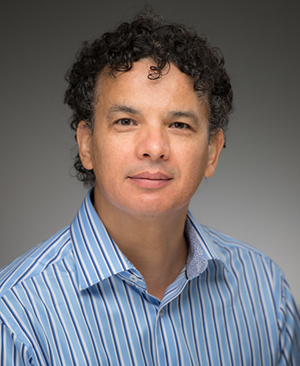 Yacine DaddiAddoun
Yacine DaddiAddoun
Counting the languages Yacine DaddiAddoun knows takes more than one hand. He’s fluent in Arabic, French, and English, and can read or speak Portuguese, Spanish, and Italian.
The most unique one on the list, though, is the first one he learned—and the one that plays the biggest role in his research. DaddiAddoun’s native tongue is Tumzabt, a dialect of Berber spoken in his home nation of Algeria.
DaddiAddoun’s scholarship focuses largely on the abolition of slavery in Algeria (he is currently completing a book on the topic), as well as slavery throughout other Islamic nations and the history of Islam in Africa.
He joins the department as an assistant professor after three years at the University of Kansas. He is teaching a history survey course on Islam in Africa and an upper-level course, Slavery in the Lands of Islam.
“The opportunities Notre Dame has for faculty, in terms of research, in terms of facilities, in terms of resources, is remarkable,” he said. “This is a tremendous opportunity to advance my research.”
A Byzantine Tradition
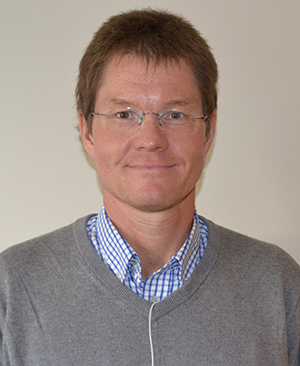 Alexander Beihammer
Alexander Beihammer
Bolstering the department’s expertise in Byzantine history, Alexander Beihammer comes to Notre Dame from the University of Cyprus.
Beihammer’s research interests include Byzantine diplomatics and institutional history, diplomacy and cultural exchange between Byzantium and Muslim nations, and Byzantine-Frankish contacts.
He has been impressed, he said, by the history and strength of Notre Dame’s commitment to the interdisciplinary study of the Middle Ages, including the renowned Medieval Institute and extensive library collections in Medieval and Byzantine studies.
“We have a group of enthusiastic students and faculty here who are very much interested in making contacts between Medieval West and East,” he said. “This is quite appealing. We hope to create a Byzantine tradition here.”
A speaker of German, Greek, English, and French and reader of ancient Greek, Arabic, Latin, Ottoman and modern Turkish, Persian, and Italian, Beihammer is teaching a course on Byzantine history and a University Seminar on Christian-Muslim Encounters.
The associate professor is currently finishing a book on the Turks’ expansion into Asia Minor in the 11th and 12th centuries and their encounters with Byzantine Greeks, examining how cultural entities co-existed and collaborated. He is also working on a new edition and interpretation of Byzantine documents dating to the 13th century.
What Slave Traders Left Behind
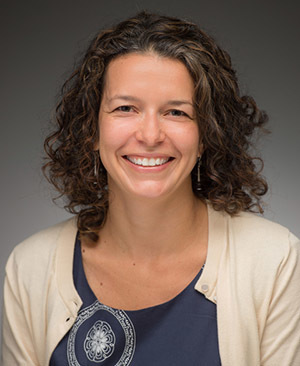 Mariana Candido
Mariana Candido
Mariana Candido studies the impact of the transatlantic slave trade on African society—but she isn’t focused on the people who were taken away. She’s interested in the ones who stayed.
Candido’s research centers on how the people of west-central Africa coped with quickly losing so many people to slavers, and what impact the population decline had on marriage and political and social organizations.
Lately, her scholarship has centered on how 19th-century women in Angola and elsewhere on Africa’s Atlantic coast were able to acquire land and other property. Notre Dame will provide significant support for her continued research in Angola, and being affiliated with a Catholic institution will help her gain additional access to archives in that country, which has deep ties to the Catholic Church.
Coming from the University of Kansas, Candido said she was excited to see how much interest there is on campus in studying slavery as part of the fight to end modern human trafficking.
“The sense of social justice and social concerns has been important for me, finding dialogue with faculty here,” said Candido, an associate professor. “It has been a very good surprise. The vibrant group of students who are interested in this issue has been very stimulating.”
Where Faith Meets Politics and Economics
 Darren Dochuk
Darren Dochuk
For Darren Dochuk, there’s an energy at Notre Dame that simply can’t be found anywhere else.
After stints at Purdue University and Washington University in St. Louis, the associate professor is returning to the school and department where he earned his Ph.D.
“It’s not just about coming home,” he said. “What I love about it here is this pursuit of betterment of the whole person. It’s a truly lived experience at Notre Dame.”
In addition to teaching a post-World War II U.S. history survey course, he is continuing his research on the ideological, institutional, and cultural ties between evangelicalism and oil throughout the 20th century. His forthcoming book on the subject is tentatively titled Anointed With Oil: God and Black Gold in America’s Century.
His 2011 book, From Bible Belt to Sunbelt, on grassroots politics and evangelical conservatism, won the American Historical Association’s John H. Dunning Prize, the Organization of American Historians’ Ellis W. Hawley Prize, and the Society of American Historians’ Allan Nevins Prize.
“My interests are in exploring both the obvious but also the hidden aspects of faith and its social, economic, cultural, and political context, and how all of that is shaped and developed through American society,” he said. “What better place to do that than a university that is very much at the heart of that?”
Lessons From A Business School
 Elisabeth Köll
Elisabeth Köll
Elisabeth Köll is a trained historian, but she spent the last seven years teaching MBA students at Harvard Business School.
An expert in Chinese socioeconomic and business history, Köll was teaching management courses that incorporated her knowledge of China and the global business environment.
Returning to a liberal arts environment as an associate professor in the Department of History offers more opportunities for fieldwork and historically oriented research, she said—but her teaching will benefit from her time with MBAs, too.
“I have a better understanding of how to approach a very complex society and social, economic, and political system, and a better understanding of what students really want to know about it,” she said. “And now I can combine that with a very solid historical academic study that goes beyond the needs of a professional school.”
Köll is currently finishing a book, Railroads and the Making of Modern China, on the history of Chinese railroad infrastructure. She is teaching a course on China’s long 20th century and a University Seminar called Shanghai Confidential, on how colonialism, capitalism, and communism helped the city evolve into a global hub.
“I’m trying to use history to make students see the complexity of China,” she said. “We can really study the past here to understand the present.”
The Importance of Experiments
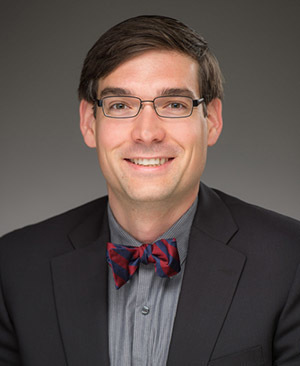 Evan Ragland
Evan Ragland
When Evan Ragland isn’t thinking about the classroom, he’s thinking about the laboratory.
A scholar of the history of science and medicine, the assistant professor has led historical recreations of scientific experiments—conducting a chemistry exercise using, for example, only the ingredients available to Isaac Newton. His current research is focused on the rise of the culture of experimentation in 17th-century Europe.
It was the first time scientific experiments were embraced as an essential tool of knowledge, he said, and medicine played a significant role in that acceptance. In the fight to combat disease, humans interacted with natural objects, bodies, animals, and drugs—building trust in the experimentation process.
Previously at the University of Alabama in Huntsville, Ragland said he was impressed by Notre Dame’s concentration of expertise in the cultural and intellectual history of early modern Europe and its “very strong, very collegial, very energetic” History and Philosophy of Science program.
Notre Dame is also an ideal home for Ragland’s work on the intersection of science and religion—both in modern times and as far back as the 16th century. This semester he is teaching a University Seminar on science and religion in history, in which students will examine key events through the lenses of theology, science, politics, and the personalities of the people involved.
“I’m continually thinking about and hoping to contribute to conversations about science and religion in America,” he said. “They tend to be dominated by radicals on the extremes. I think we need a lot more careful conversation about what we say about science and religion.”
Originally published by at al.nd.edu on October 23, 2015.